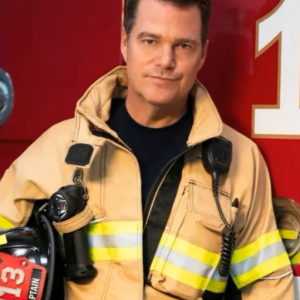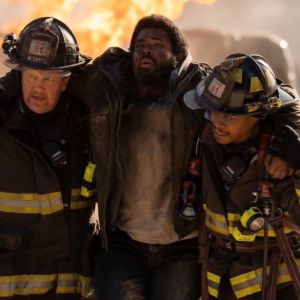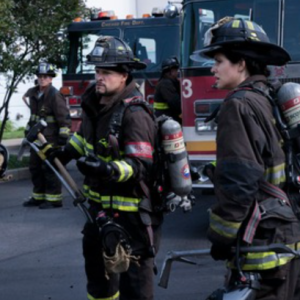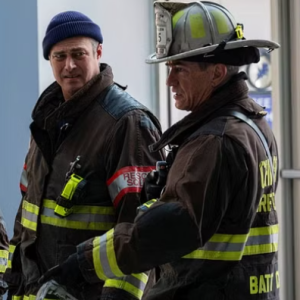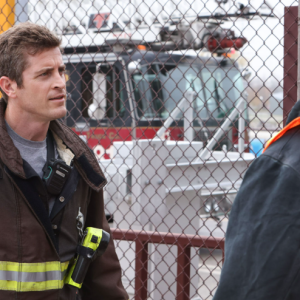Chicago Fire has never shied away from emotionally charged storylines, but one recent scene pushed both the characters and the audience to the brink of raw vulnerability. In a gripping hospital sequence, Stella Kidd finds herself at the heart of a life-changing conversation with a young woman battling addiction, pregnancy, and overwhelming fear. The moment begins quietly, almost hesitantly, as the woman confesses her struggles with sobriety, her failed attempts to detox on her own, and the crushing realization that she cannot care for the baby she is about to bring into the world. Her words pour out in trembling honesty: she can barely take care of herself, and yet, here she is, about to give life to a child she believes deserves far better. That’s where Kidd steps in, bridging the gap between despair and hope, offering not just empathy but a promise—a commitment to giving the baby the kind of life the mother desperately wishes she could provide. For a show rooted in heroism, this moment is less about the flames and more about the quiet courage it takes to accept both your failures and your possibilities.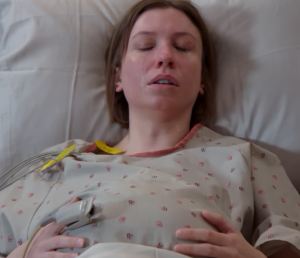
The weight of this scene intensifies when Kidd reveals her own painful truth. In a deeply human confession, she admits to having battled a serious drug problem when she was the same age as the young mother. The shock on the girl’s face mirrors that of the audience; Stella Kidd, the strong and resilient firefighter fans have admired for years, shares that her path was once as dark and uncertain as the one now laid before this frightened teenager. Kidd’s vulnerability transforms the interaction from a one-sided plea for help into a shared moment of connection. She doesn’t just offer judgment-free compassion; she offers proof that there is a way through the storm. Kidd explains how thinking about the future—the life waiting on the other side of recovery—was what helped her endure. For the young woman, who once dreamed of becoming a teacher before drugs derailed her life, this is a revelation: maybe, at just nineteen, she still has time to turn things around. It is a moment of dramatic resonance, a reminder that Chicago Fire is as much about saving people emotionally as it is about rescuing them physically.
But the fragile stillness of this emotional exchange shatters suddenly as the young mother doubles over in pain. What began as a heartfelt conversation becomes a medical emergency, with panic flooding the hospital room. Her contractions grow sharper, her water breaks, and something feels horribly wrong. The doctors rush in, assessing the situation with urgent precision, and the diagnosis is devastating: placental abruption. The placenta has begun to separate from the uterine wall, threatening both mother and child in a race against time. An emergency C-section is the only option, and the young woman’s terror spikes as she processes the words “you’re bleeding too quickly.” The medical staff spring into action—alerting the blood bank, paging anesthesia, calling in the NICU—yet amidst the whirlwind of commands and medical jargon, it is Stella Kidd’s steady presence that anchors the moment. For viewers, the shift from heartfelt confession to life-or-death emergency exemplifies the unpredictability of Chicago Fire, a show that thrives on twisting the knife of tension at the very moment hope begins to flicker.
As the doctors prepare for surgery, the young woman’s desperation breaks through again. Though she had initially insisted she wanted no one in the delivery room, the magnitude of the crisis changes everything. She pleads for her father to be called, a heartbreaking admission that in her most vulnerable hour, she still longs for family. But time will not allow for waiting—her bleeding is too severe. Instead, she turns to Stella, asking if she will be by her side. It is a plea loaded with meaning, because Stella has become more than just a firefighter or a bystander; she has become the embodiment of safety, empathy, and strength in this young woman’s darkest hour. When Stella agrees, the relief is palpable. She will not be alone. The doctors, nurses, and Stella rush her toward the operating room, the urgency of the moment underscored by the fear etched across everyone’s faces. The stakes could not be higher: two lives hang in the balance, and only swift action will determine the outcome.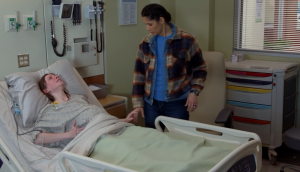
What makes this scene so powerful is not just the medical drama or the pulse-pounding urgency, but the way it weaves together themes of addiction, redemption, and chosen family. The young woman’s confession of failure and Stella’s admission of her own past mistakes create a bond that transcends circumstance, and that bond is tested instantly when tragedy strikes. For Stella, being asked to walk into the operating room as a source of comfort carries a weight far greater than any fire she has battled—it is about holding steady when someone’s entire world is unraveling. For the audience, the drama is not only in whether the baby will survive or the mother will pull through, but in the unspoken question of what comes next. Will this young woman find a way to rebuild her life? Will Stella and Severide step into the role of parents through adoption, as hinted in earlier episodes? Chicago Fire thrives on intertwining the professional with the deeply personal, and this sequence encapsulates that duality with heart-wrenching precision. It is a reminder that while the firehouse may be the beating heart of the series, its soul lies in moments like these—moments where compassion, vulnerability, and courage collide under the harshest of circumstances.
